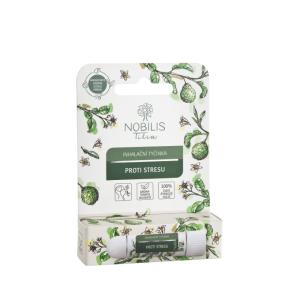
The holistic approach transforms health care into a way of life

Holistic Approach to Health - A Path to Physical and Mental Balance
In recent years, the term holistic approach has been appearing more frequently. Whether it's about health, body care, relationships, or even work, this concept is becoming part of the common vocabulary. But what exactly does a holistic approach mean, and why is it gaining such attention nowadays?
Holistic (from the Greek holos – whole) means comprehensive. The fundamental idea of this approach is that different parts form a single whole that cannot be understood or treated in isolation. When we talk about holistic health, it's not just about not having a cold or high blood pressure. It's about connecting physical, mental, emotional, and social health. Health is not just the absence of disease, but a state of overall physical and mental harmony.
More Than Just Symptom Treatment
In conventional medicine, we often focus on symptoms. Do you have a headache? Take a pill. Having trouble sleeping? A sleeping aid might help. But what if the headache is related to stress? And insomnia to unresolved emotions? The holistic approach to health seeks to go deeper. It doesn't just ask, what hurts, but why it hurts – and what might be related to it.
A typical example might be chronic fatigue. Instead of just addressing it with caffeine or dietary supplements, the holistic approach looks at the person's lifestyle as a whole. Are they getting enough sleep? Do they exercise regularly? What does their diet look like? Do they feel mentally well? Do they work in an environment that fulfills them? All of this can affect their energy.
In practice, this means that if you visit a doctor with back pain, a holistically-minded one will not only ask where it hurts but also how you sleep, how you move, how you feel at work, and whether you're possibly troubled by stress or anxiety. The body is not a machine made up of separate parts, but a connected system where one thing affects another.
Connecting Body, Mind, and Spirit
One of the fundamental pillars of the holistic approach is the belief that the health of the body cannot be separated from the health of the mind and soul. It's no coincidence that people with long-term mental health issues often suffer from physical illnesses – and vice versa. Emotional strain can manifest as stomach pain, suppressed grief as breathing problems.
Scientific studies increasingly confirm what Eastern medicine has claimed for centuries – that the psyche plays a crucial role in the prevention and treatment of diseases. For example, a study published in Harvard Health Publishing shows that regular meditation can reduce stress, improve sleep quality, and strengthen immunity. Meditation, yoga, breathing exercises, or working with emotions are typical tools of the holistic approach.
An interesting example is the story of Mrs. Jana from Brno, who suffered from long-term pain after knee surgery, even though everything was fine from a medical perspective. When she turned to a holistic physiotherapist, they began exploring not only posture but also psychological factors. It turned out that the pain worsened during periods of stress at work. After incorporating relaxation techniques and changing the work environment, the pain gradually diminished.
The holistic approach does not mean rejecting modern medicine but complementing it with a broader perspective. It's about treating the person, not just the disease.
What Does Holistic Care Look Like in Practice?
Many people associate the holistic approach with alternative practices like aromatherapy, herbalism, or acupuncture. And while these methods can be part of comprehensive care, the approach itself is much broader. Holistic care can include both conventional treatment and lifestyle changes, nutrition, exercise, emotional work, and mental well-being support.
Areas where the holistic approach is applied include:
- Nutrition: It's not just about what we eat, but how we eat. It considers the emotional relationship with food, the impact of diet on the psyche, and long-term habits.
- Exercise: Not just intense workouts, but also natural movement, walking, yoga, or conscious stretching.
- Sleep: Sleep quality is crucial for regeneration and mental stability.
- Stress and Emotional Health: Meditation, breathing exercises, therapy, or simply spending time in nature.
- Social Relationships: Closeness, support, and a sense of belonging have a fundamental impact on health.
Try our natural products
In some modern clinics today, doctors collaborate with psychotherapists, nutritionists, and coaches. Such collaboration yields results because it reveals deeper connections between health problems and lifestyle.
Why Is the Holistic Approach Being Discussed Now?
Perhaps it's the result of a hurried world, increasing stress, and a sense of alienation. Perhaps more and more people realize that health is not just about not being sick. In a time when we have instant access to information, smartwatches monitor our heart rate, and apps remind us when to drink, it's natural to seek deeper meaning and balance.
More and more people are turning to ways of life that are more sustainable, natural, and in harmony with nature. It's not just about health, but a life philosophy. The holistic approach resonates with the idea that if we take care of the planet, our relationships, and ourselves, we benefit everyone around us.
As Hippocrates, the father of modern medicine, said: “The greatest error in treating diseases is that there are physicians for the body and physicians for the soul, although both cannot be separated."
This statement captures the essence of the holistic approach. It's not a trendy fad but a return to something we once knew – that health is a synergy of many factors and that self-care is a lifelong process.
And when you look around, you'll see evidence everywhere. People who take care of their body and mind, who spend time outdoors, consciously rest, and have meaningful relationships, appear calmer, more resilient, and more content. And that's what the holistic approach is all about – not just surviving, but truly living.


